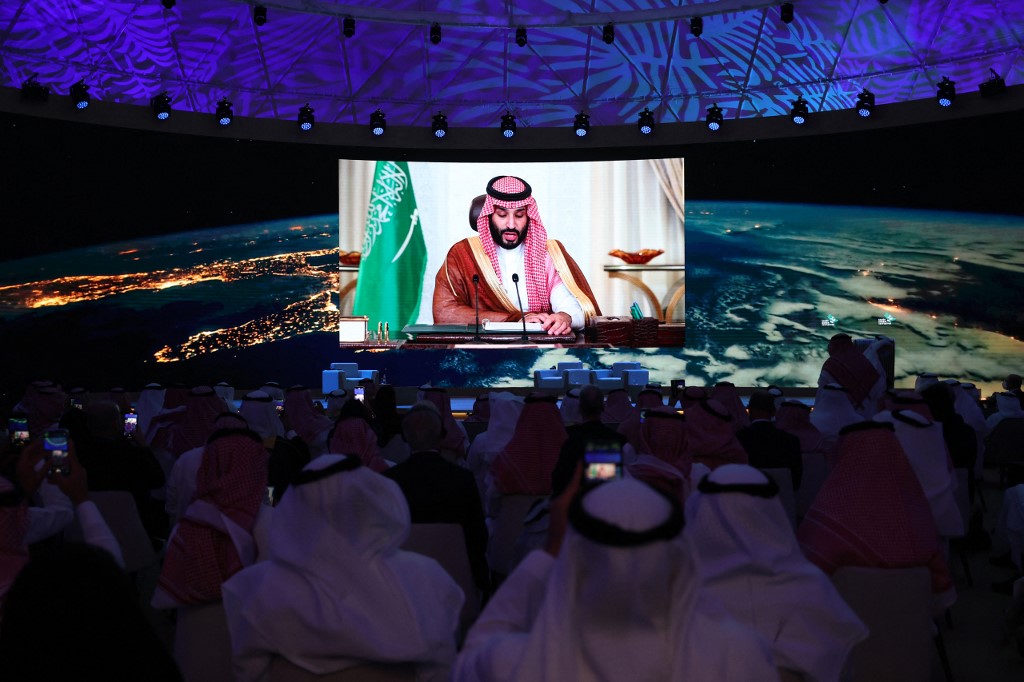
MANAMA, Bahrain (AFP) – Bahrain announced Sunday it aims to achieve net zero carbon emissions by 2060, a day after neighbouring Saudi Arabia made the same pledge ahead of the COP26 climate summit.
The Gulf kingdom “aims to reach carbon neutrality by 2060, in order to face the challenges posed by climate change and to protect the environment”, its official news agency said.
Bahrain will use technology including carbon capture, as well as tree planting, to compensate for its emissions, it said.
In 1932, Bahrain became the first Gulf Arab state to produce petrol.

Its reserves have since almost dried up, but in 2008 it announced it had discovered 80 billion barrels of shale oil.
The kingdom is not a member of oil cartel OPEC, and it only exports refined petroleum, not crude oil.
It produces around 200,000 barrels per day, accounting for some 80 percent of state revenues.
At the Saudi Green Initiative forum on Saturday, Crown Prince Mohammed bin Salman announced his country’s “target to reach net zero emissions by 2060”.

Earlier this month, the United Arab Emirates said it aimed to achieve carbon neutrality by 2050.
The UN says more than 130 countries have set or are considering a target of reducing greenhouse gas emissions to net zero by 2050, an objective it says is “imperative” to safeguard a liveable climate.
The COP26 climate summit, scheduled for October 31-November 12 in the Scottish city of Glasgow, is the biggest climate conference since the 2015 Paris summit.
It is seen as crucial in setting worldwide emission targets to slow global warming.
© Agence France-Presse







